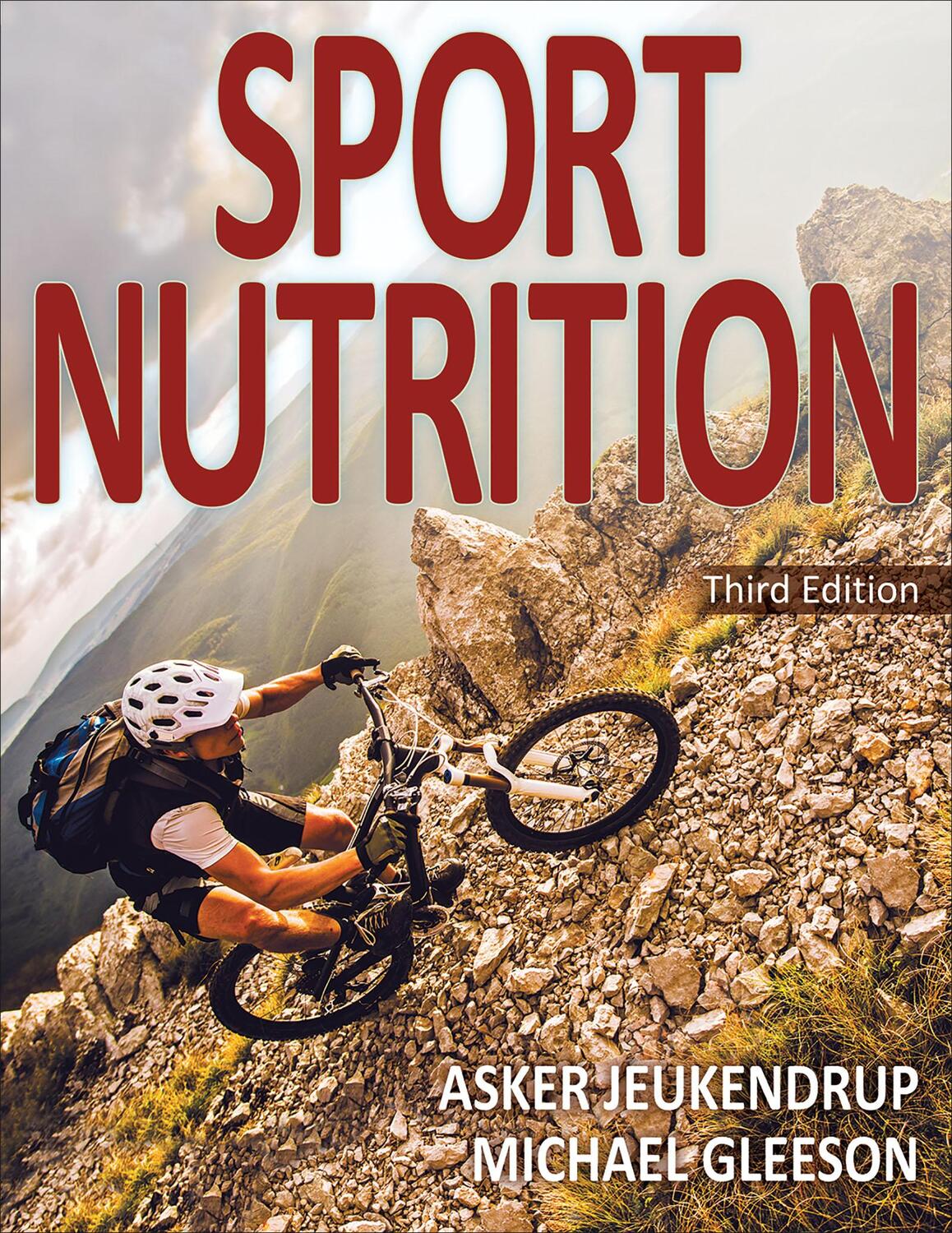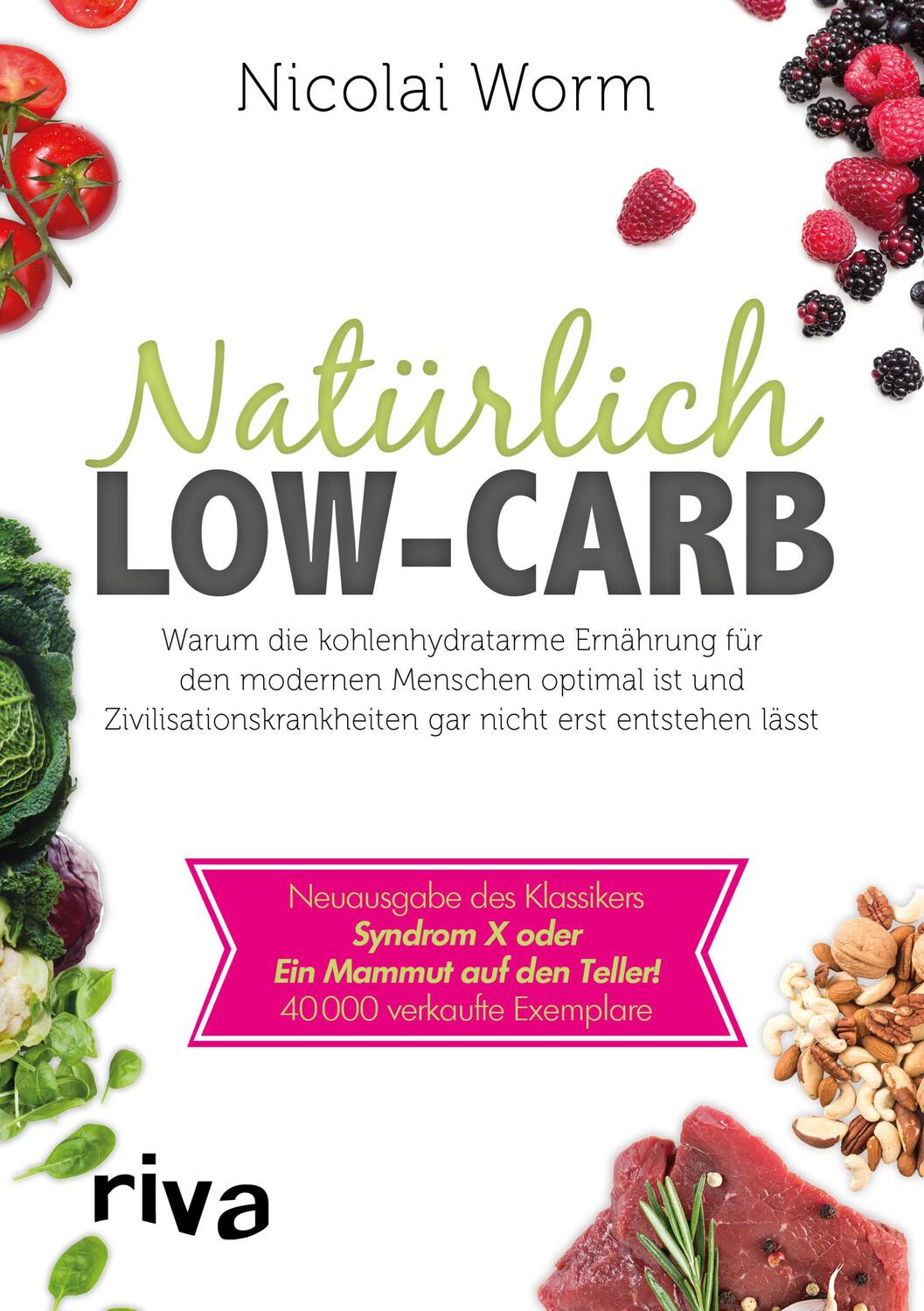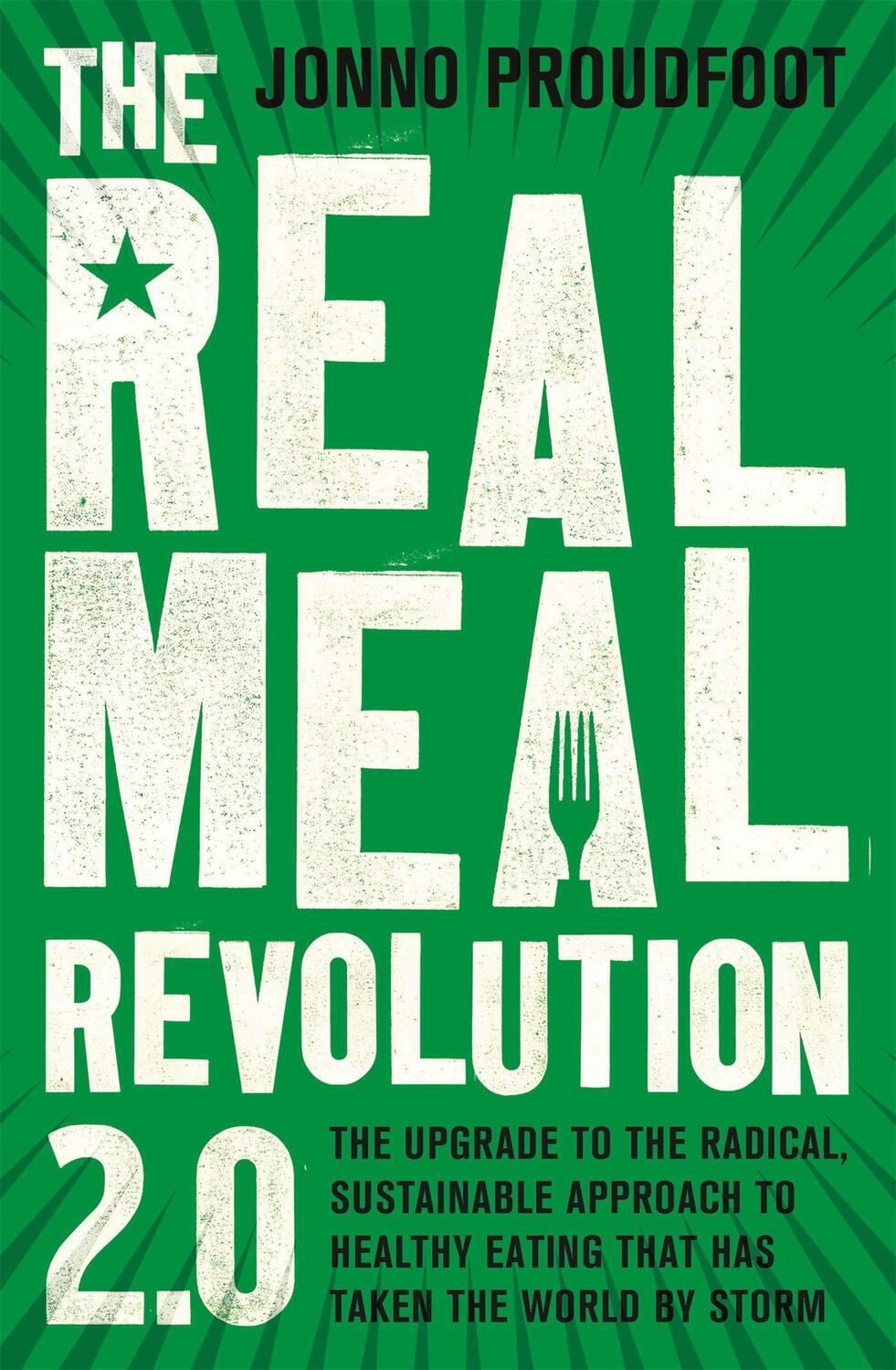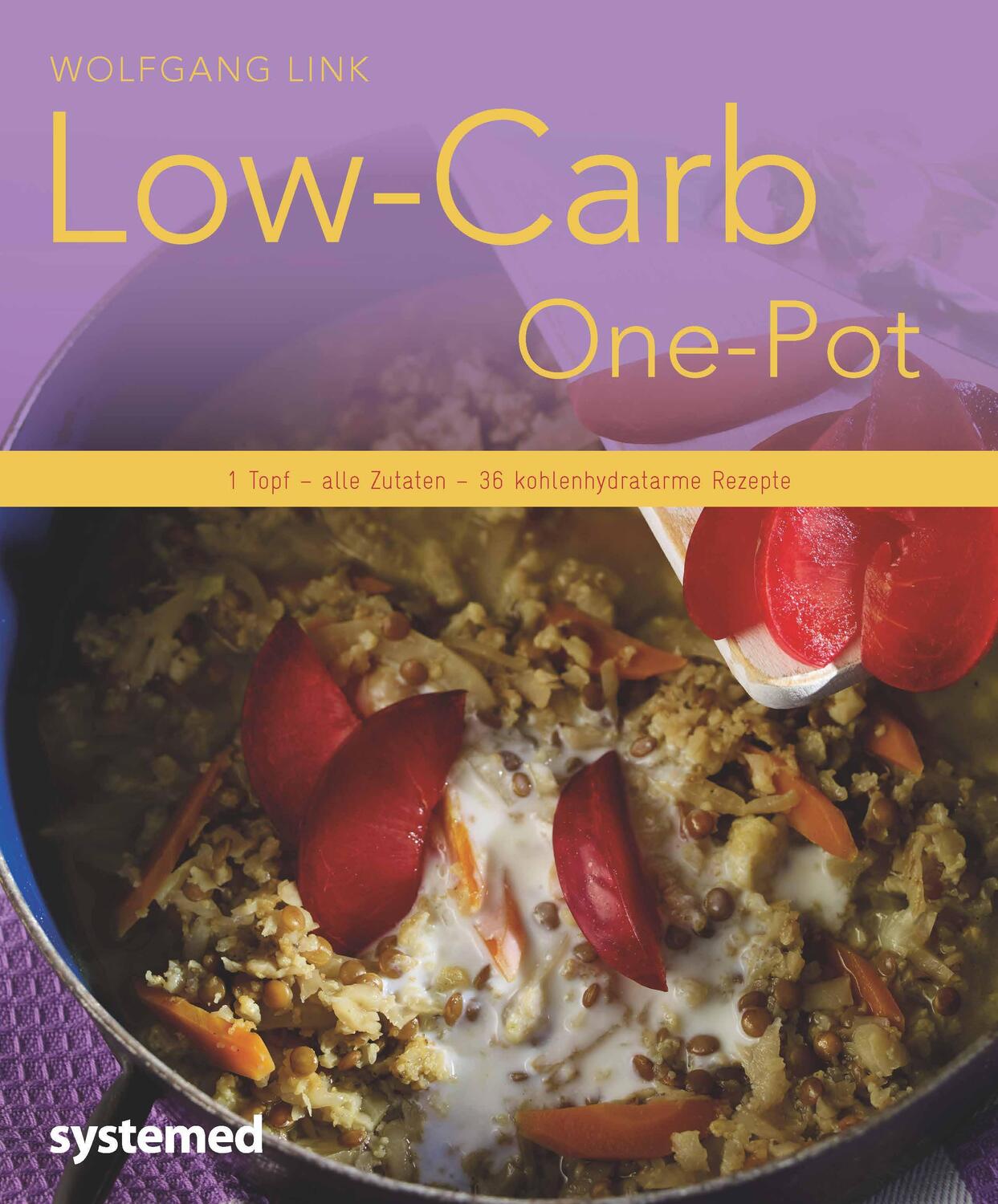126,95 €*
Versandkostenfrei per Post / DHL
Lieferzeit 1-2 Wochen
Sport Nutrition, Third Edition, uses a physiological basis to provide an in-depth look at the science supporting nutrition recommendations. Students will come away with an understanding of nutrition as it relates to sport and the influence of nutrition on performance, training, and recovery.
Sport Nutrition, Third Edition, uses a physiological basis to provide an in-depth look at the science supporting nutrition recommendations. Students will come away with an understanding of nutrition as it relates to sport and the influence of nutrition on performance, training, and recovery.
Asker Jeukendrup, PhD, is a professor at Loughborough University in the United Kingdom, the director of the Mysportscience performance consulting firm, and cofounder and co-CEO of CORE Nutrition Planning. After obtaining his degrees at Maastricht University in the Netherlands, he spent a year at the University of Texas at Austin before accepting a position at the University of Birmingham in the United Kingdom. At the University of Birmingham, he served for 12 years as the director of the Human Performance Laboratory, heading up the exercise metabolism research group. His research focused on the metabolic responses to exercise, the regulation of carbohydrate and fat metabolism during exercise, adaptations to training, and the influence of nutrition on metabolism and exercise nutrition. He is considered a leading expert in the general areas of sports nutrition, training and overtraining, and recovery.
Jeukendrup received several awards for his achievements, including the Danone Chair at the University of Brussels in 2005. In 2011 he accepted a position as global senior director of exercise physiology at the Gatorade Sports Science Institute, defining strategies for research, education, and sport science services for the largest sports nutrition company in the world. He is a registered sport and exercise nutritionist, having worked with many elite athletes and clubs, including the Rabobank, Lotto-Soudal, and Lotto-Jumbo professional cycling teams; Chelsea Football Club; FC Barcelona; Red Bull Salzburg; UK Athletics; the British Olympic Association; African runners; and several Olympic and world champions. He is currently nutrition performance manager for the Dutch Olympic Committee and head of performance nutrition for the Lotto-Jumbo professional cycling team.
Jeukendrup has published extensively in sport nutrition. He is a fellow of the American College of Sports Medicine and the European College of Sport Science. In his leisure time, he enjoys running, cycling, and competing in triathlons. To date, he has completed 21 Ironman-distance races, including the Ironman Hawaii six times.
Michael Gleeson, PhD, is a professor of exercise biochemistry in the School of Sport, Exercise, and Health Sciences at Loughborough University in Leicestershire, United Kingdom. Gleeson is considered a world authority on exercise biochemistry, immunology, and nutrition, and he has worked with numerous world-class athletes and professional football clubs. He has taught sport nutrition at the university level and has published several books and over 250 scientific articles in scientific and medical journals. He has a particular interest and expertise in the effects of exercise, training, and nutrition on immune function.
Gleeson has been both president and vice president of the International Society of Exercise and Immunology. He is a fellow of the European College of Sport Science and a member of the American College of Sports Medicine, the Physiological Society, and the British Association of Sport and Exercise Sciences.
Gleeson enjoys playing tennis, hill walking, and watching football and films.
Chapter 1. Nutrients and Recommended Intakes
Function of Nutrients
Carbohydrate
Fat
Protein
Water
Alcohol
Vitamins, Minerals, and Trace Elements
Phytonutrients
Recommended Intakes of Nutrients
Development of Recommended Intakes
Current Recommended Intakes
Analyzing Dietary Intake
Chapter 2. Healthy Eating
Health Effects of Consuming Excess Amounts of Nutrients
Practical Guidelines for a Balanced, Healthy Diet
Recommendations for a Healthy Diet and Lifestyle
Nutrition Facts Labels
Nutrient Content and Health Claims on Food Packaging
Processed Food and Additives
Fat Substitutes
Chapter 3. Fuel Sources for Muscle and Exercise Metabolism
Subcellular Skeletal Muscle Structure
Force Generation in Skeletal Muscle
Fiber Types
Energy for Muscle Force Generation
Fuel Stores in Skeletal Muscle
Regulation of Energy Metabolism
Metabolic Responses to Exercise
Metabolic Adaptations to Exercise Training
Chapter 4. Energy
Energetic Efficiency
Measuring the Energy Content of Food
Measuring Energy Expenditure
Components of Energy Expenditure
Energy Balance
Chapter 5. Gastric Emptying, Digestion, and Absorption
Anatomy of the Gastrointestinal Tract
Regulation of the Gastrointestinal Tract
Digestion
Absorption
Gut Microbiota
Regulation of Gastric Emptying
Gastrointestinal Problems During and After Exercise
Chapter 6. Carbohydrate
History
Role of Carbohydrate
Recommendations for Carbohydrate Intake
Carbohydrate Intake in the Days Before Competition
Carbohydrate Intake in the Hours Before Exercise
Carbohydrate Intake 30 to 60 Minutes Before Exercise
Carbohydrate Intake During Exercise
Carbohydrate Intake After Exercise
Chapter 7. Fat
Fat Metabolism During Exercise
Limits to Fat Oxidation
Fat as a Fuel During Exercise
Regulation of Carbohydrate and Fat Metabolism
Fat Supplementation and Exercise
Effects of Diet on Fat Metabolism and Performance
Chapter 8. Protein and Amino Acids
Amino Acids
Techniques to Study Protein and Amino Acid Metabolism
Protein Requirements for Exercise
Training and Protein Metabolism
Effect of Protein Intake on Protein Synthesis
Amino Acids as Ergogenic Aids
Protein Intake and Health Risks
Chapter 9. Water Requirements and Fluid Balance
Thermoregulation and Exercise in the Heat
Effects of Dehydration on Exercise Performance
Mechanisms of Heat Illness
Effects of Fluid Intake on Exercise Performance
Daily Water Balance
Fluid Requirements for Athletes
Chapter 10. Vitamins and Minerals
Water-Soluble and Fat-Soluble Vitamins
Recommended Intakes of Vitamins
Recommended Intakes of Vitamins for Athletes
Macrominerals and Microminerals
Recommended Intakes of Minerals
Critical Micronutrient Functions
Assessing Micronutrient Status
Exercise and Micronutrient Requirements
Ergogenic Effect of Micronutrient Supplementation
Summary of Recommendations for Micronutrient Intake in Athletes
Chapter 11. Nutrition Supplements
Relative Importance of Supplements to a Normal Diet
Nonregulation of Nutrition Supplements
Critical Evaluation of Nutrition Supplements Studies
Androstenedione
Bee Pollen
Beetroot Juice
Beta Alanine and Carnosine
Beta-Hydroxy Beta-Methylbutyrate
Boron
Caffeine
Carnitine
Cherry Juice
Choline
Chromium
Coenzyme Q10
Creatine
Dehydroepiandrosterone
Fish Oil and Omega-3 Fatty Acids
Ginseng
Glandulars
Glycerol
Green Tea
Inosine
Ketone Salts
Lactate Salts and Polylactate
Lecithin
Medium-Chain Triacylglycerol
Pangamic Acid
Phosphatidylserine
Phosphorus and Phosphate Salts
Polyphenols
Pyruvate and Dihydroxyacetone
Sodium Bicarbonate
Sodium Citrate
Sodium Nitrate
Vanadium
Wheat Germ Oil
Additive Effects of Combining Different Supplements
Contamination of Nutrition Supplements
Chapter 12. Nutrition and Training Adaptations
Training Adaptations
Signal Transduction Pathways
Starting a Signaling Cascade
Secondary Signals
Nutrition and Effects on Training Adaptations
Overreaching and the Overtraining Syndrome
Nutrition and Effects on Sleep
Nutrition and Effects on Rehabilitation
Chapter 13. Nutrition and Immune Function in Athletes
Functions of the Immune System and Its Cellular Components
General Mechanism of the Immune Response
Causes of Illness in Athletes
Effects of Exercise on the Immune System
Nutritional Manipulations to Decrease Immunodepression in Athletes
Conclusions and Recommendations
Chapter 14. Body Composition
Optimal Body Weight and Composition
Body Composition Models
Normal Ranges of Body Weight and Body Fat
Body Composition Measurement Techniques
Chapter 15. Weight Management
Genetics
Energy and Macronutrient Intake
Regulation of Appetite
Effect of Exercise on Appetite
Physical Activity and Energy Expenditure
Dietary Weight-Loss Methods
Exercise for Weight Loss
Decreased Resting Metabolic Rate With Weight Loss
Weight Cycling
Gender Differences in Weight Loss
Practicalities of Weight Loss for Athletes
Weight Gain
Chapter 16. Eating Disorders in Athletes
Types of Eating Disorders
Prevalence of Eating Disorders in Athletes
Effects of Eating Disorders on Sports Performance
Effects of Eating Disorders on Health
Treatment and Prevention of Eating Disorders
Chapter 17. Personalized Nutrition
Genetic Influences
Turning Science Into Practice
Specific Populations
Nutrition Application in Different Sport Situations and Populations
Appendix A. Key Concepts in Biological Chemistry Relevant to Sport Nutrition
Appendix B. Unit Conversion Tables
Appendix C. Recommended Daily Allowances for North America
Appendix D. Reference Nutrient Intakes for the United Kingdom
Appendix E. Recommended Dietary Intakes for Australia and New Zealand
| Erscheinungsjahr: | 2018 |
|---|---|
| Genre: | Sport |
| Produktart: | Nachschlagewerke |
| Rubrik: | Hobby & Freizeit |
| Thema: | Lexika & Handbücher |
| Medium: | Taschenbuch |
| Seiten: | 616 |
| Inhalt: | Kartoniert / Broschiert |
| ISBN-13: | 9781492529033 |
| ISBN-10: | 1492529036 |
| Sprache: | Englisch |
| Einband: | Kartoniert / Broschiert |
| Autor: |
Jeukendrup, Asker E.
Gleeson, Michael |
| Hersteller: | Human Kinetics Publishers |
| Maße: | 280 x 217 x 40 mm |
| Von/Mit: | Asker E. Jeukendrup (u. a.) |
| Erscheinungsdatum: | 22.08.2018 |
| Gewicht: | 1,415 kg |
Asker Jeukendrup, PhD, is a professor at Loughborough University in the United Kingdom, the director of the Mysportscience performance consulting firm, and cofounder and co-CEO of CORE Nutrition Planning. After obtaining his degrees at Maastricht University in the Netherlands, he spent a year at the University of Texas at Austin before accepting a position at the University of Birmingham in the United Kingdom. At the University of Birmingham, he served for 12 years as the director of the Human Performance Laboratory, heading up the exercise metabolism research group. His research focused on the metabolic responses to exercise, the regulation of carbohydrate and fat metabolism during exercise, adaptations to training, and the influence of nutrition on metabolism and exercise nutrition. He is considered a leading expert in the general areas of sports nutrition, training and overtraining, and recovery.
Jeukendrup received several awards for his achievements, including the Danone Chair at the University of Brussels in 2005. In 2011 he accepted a position as global senior director of exercise physiology at the Gatorade Sports Science Institute, defining strategies for research, education, and sport science services for the largest sports nutrition company in the world. He is a registered sport and exercise nutritionist, having worked with many elite athletes and clubs, including the Rabobank, Lotto-Soudal, and Lotto-Jumbo professional cycling teams; Chelsea Football Club; FC Barcelona; Red Bull Salzburg; UK Athletics; the British Olympic Association; African runners; and several Olympic and world champions. He is currently nutrition performance manager for the Dutch Olympic Committee and head of performance nutrition for the Lotto-Jumbo professional cycling team.
Jeukendrup has published extensively in sport nutrition. He is a fellow of the American College of Sports Medicine and the European College of Sport Science. In his leisure time, he enjoys running, cycling, and competing in triathlons. To date, he has completed 21 Ironman-distance races, including the Ironman Hawaii six times.
Michael Gleeson, PhD, is a professor of exercise biochemistry in the School of Sport, Exercise, and Health Sciences at Loughborough University in Leicestershire, United Kingdom. Gleeson is considered a world authority on exercise biochemistry, immunology, and nutrition, and he has worked with numerous world-class athletes and professional football clubs. He has taught sport nutrition at the university level and has published several books and over 250 scientific articles in scientific and medical journals. He has a particular interest and expertise in the effects of exercise, training, and nutrition on immune function.
Gleeson has been both president and vice president of the International Society of Exercise and Immunology. He is a fellow of the European College of Sport Science and a member of the American College of Sports Medicine, the Physiological Society, and the British Association of Sport and Exercise Sciences.
Gleeson enjoys playing tennis, hill walking, and watching football and films.
Chapter 1. Nutrients and Recommended Intakes
Function of Nutrients
Carbohydrate
Fat
Protein
Water
Alcohol
Vitamins, Minerals, and Trace Elements
Phytonutrients
Recommended Intakes of Nutrients
Development of Recommended Intakes
Current Recommended Intakes
Analyzing Dietary Intake
Chapter 2. Healthy Eating
Health Effects of Consuming Excess Amounts of Nutrients
Practical Guidelines for a Balanced, Healthy Diet
Recommendations for a Healthy Diet and Lifestyle
Nutrition Facts Labels
Nutrient Content and Health Claims on Food Packaging
Processed Food and Additives
Fat Substitutes
Chapter 3. Fuel Sources for Muscle and Exercise Metabolism
Subcellular Skeletal Muscle Structure
Force Generation in Skeletal Muscle
Fiber Types
Energy for Muscle Force Generation
Fuel Stores in Skeletal Muscle
Regulation of Energy Metabolism
Metabolic Responses to Exercise
Metabolic Adaptations to Exercise Training
Chapter 4. Energy
Energetic Efficiency
Measuring the Energy Content of Food
Measuring Energy Expenditure
Components of Energy Expenditure
Energy Balance
Chapter 5. Gastric Emptying, Digestion, and Absorption
Anatomy of the Gastrointestinal Tract
Regulation of the Gastrointestinal Tract
Digestion
Absorption
Gut Microbiota
Regulation of Gastric Emptying
Gastrointestinal Problems During and After Exercise
Chapter 6. Carbohydrate
History
Role of Carbohydrate
Recommendations for Carbohydrate Intake
Carbohydrate Intake in the Days Before Competition
Carbohydrate Intake in the Hours Before Exercise
Carbohydrate Intake 30 to 60 Minutes Before Exercise
Carbohydrate Intake During Exercise
Carbohydrate Intake After Exercise
Chapter 7. Fat
Fat Metabolism During Exercise
Limits to Fat Oxidation
Fat as a Fuel During Exercise
Regulation of Carbohydrate and Fat Metabolism
Fat Supplementation and Exercise
Effects of Diet on Fat Metabolism and Performance
Chapter 8. Protein and Amino Acids
Amino Acids
Techniques to Study Protein and Amino Acid Metabolism
Protein Requirements for Exercise
Training and Protein Metabolism
Effect of Protein Intake on Protein Synthesis
Amino Acids as Ergogenic Aids
Protein Intake and Health Risks
Chapter 9. Water Requirements and Fluid Balance
Thermoregulation and Exercise in the Heat
Effects of Dehydration on Exercise Performance
Mechanisms of Heat Illness
Effects of Fluid Intake on Exercise Performance
Daily Water Balance
Fluid Requirements for Athletes
Chapter 10. Vitamins and Minerals
Water-Soluble and Fat-Soluble Vitamins
Recommended Intakes of Vitamins
Recommended Intakes of Vitamins for Athletes
Macrominerals and Microminerals
Recommended Intakes of Minerals
Critical Micronutrient Functions
Assessing Micronutrient Status
Exercise and Micronutrient Requirements
Ergogenic Effect of Micronutrient Supplementation
Summary of Recommendations for Micronutrient Intake in Athletes
Chapter 11. Nutrition Supplements
Relative Importance of Supplements to a Normal Diet
Nonregulation of Nutrition Supplements
Critical Evaluation of Nutrition Supplements Studies
Androstenedione
Bee Pollen
Beetroot Juice
Beta Alanine and Carnosine
Beta-Hydroxy Beta-Methylbutyrate
Boron
Caffeine
Carnitine
Cherry Juice
Choline
Chromium
Coenzyme Q10
Creatine
Dehydroepiandrosterone
Fish Oil and Omega-3 Fatty Acids
Ginseng
Glandulars
Glycerol
Green Tea
Inosine
Ketone Salts
Lactate Salts and Polylactate
Lecithin
Medium-Chain Triacylglycerol
Pangamic Acid
Phosphatidylserine
Phosphorus and Phosphate Salts
Polyphenols
Pyruvate and Dihydroxyacetone
Sodium Bicarbonate
Sodium Citrate
Sodium Nitrate
Vanadium
Wheat Germ Oil
Additive Effects of Combining Different Supplements
Contamination of Nutrition Supplements
Chapter 12. Nutrition and Training Adaptations
Training Adaptations
Signal Transduction Pathways
Starting a Signaling Cascade
Secondary Signals
Nutrition and Effects on Training Adaptations
Overreaching and the Overtraining Syndrome
Nutrition and Effects on Sleep
Nutrition and Effects on Rehabilitation
Chapter 13. Nutrition and Immune Function in Athletes
Functions of the Immune System and Its Cellular Components
General Mechanism of the Immune Response
Causes of Illness in Athletes
Effects of Exercise on the Immune System
Nutritional Manipulations to Decrease Immunodepression in Athletes
Conclusions and Recommendations
Chapter 14. Body Composition
Optimal Body Weight and Composition
Body Composition Models
Normal Ranges of Body Weight and Body Fat
Body Composition Measurement Techniques
Chapter 15. Weight Management
Genetics
Energy and Macronutrient Intake
Regulation of Appetite
Effect of Exercise on Appetite
Physical Activity and Energy Expenditure
Dietary Weight-Loss Methods
Exercise for Weight Loss
Decreased Resting Metabolic Rate With Weight Loss
Weight Cycling
Gender Differences in Weight Loss
Practicalities of Weight Loss for Athletes
Weight Gain
Chapter 16. Eating Disorders in Athletes
Types of Eating Disorders
Prevalence of Eating Disorders in Athletes
Effects of Eating Disorders on Sports Performance
Effects of Eating Disorders on Health
Treatment and Prevention of Eating Disorders
Chapter 17. Personalized Nutrition
Genetic Influences
Turning Science Into Practice
Specific Populations
Nutrition Application in Different Sport Situations and Populations
Appendix A. Key Concepts in Biological Chemistry Relevant to Sport Nutrition
Appendix B. Unit Conversion Tables
Appendix C. Recommended Daily Allowances for North America
Appendix D. Reference Nutrient Intakes for the United Kingdom
Appendix E. Recommended Dietary Intakes for Australia and New Zealand
| Erscheinungsjahr: | 2018 |
|---|---|
| Genre: | Sport |
| Produktart: | Nachschlagewerke |
| Rubrik: | Hobby & Freizeit |
| Thema: | Lexika & Handbücher |
| Medium: | Taschenbuch |
| Seiten: | 616 |
| Inhalt: | Kartoniert / Broschiert |
| ISBN-13: | 9781492529033 |
| ISBN-10: | 1492529036 |
| Sprache: | Englisch |
| Einband: | Kartoniert / Broschiert |
| Autor: |
Jeukendrup, Asker E.
Gleeson, Michael |
| Hersteller: | Human Kinetics Publishers |
| Maße: | 280 x 217 x 40 mm |
| Von/Mit: | Asker E. Jeukendrup (u. a.) |
| Erscheinungsdatum: | 22.08.2018 |
| Gewicht: | 1,415 kg |










